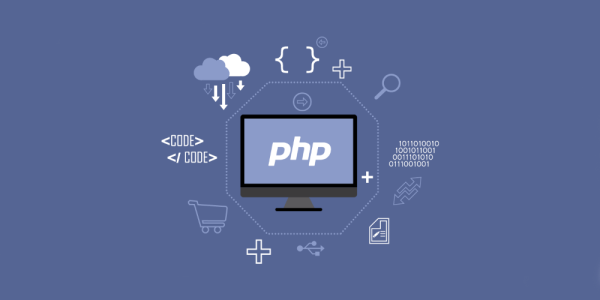Welcome to the digital era where data rules the online world! In today’s tech-savvy landscape, building data-driven web applications has become a necessity for businesses looking to thrive in a competitive market. PHP, as one of the most popular server-side scripting languages, plays a crucial role in developing dynamic and scalable web solutions. Let’s dive into how you can harness the power of PHP to create robust data-driven web applications that not only meet your current needs but also pave the way for future growth and success.
Benefits of Using PHP for Data-Driven Web Apps
When it comes to building data-driven web applications, PHP stands out as a versatile and reliable programming language. Its simplicity and ease of use make it an ideal choice for developers looking to create dynamic websites that interact with databases seamlessly.
One of the key benefits of using PHP for data-driven web apps is its extensive support for various database management systems such as MySQL, PostgreSQL, and SQLite. This compatibility allows developers to work with different databases based on project requirements without any hassle.
PHP offers a wide range of frameworks like Laravel and Symfony that provide ready-made solutions for building scalable web applications efficiently. These frameworks come equipped with built-in tools and libraries that streamline the development process, saving time and effort.
PHP’s open-source nature means there is a vast community of developers constantly contributing updates, plugins, and resources. This ensures that projects built with PHP remain up-to-date and secure in the ever-evolving digital landscape.
Understanding Scalability in Web Development
Scalability in web development refers to the ability of a system to handle a growing amount of work or its potential to accommodate growth. It’s like preparing for a marathon; you need endurance and stamina to go the distance. The same applies when building web applications – they must be able to grow with demand.
When designing for scalability, factors such as performance, load balancing, and resource utilization come into play. It’s about creating a robust foundation that can support increasing traffic without compromising user experience. Think of it as laying down sturdy tracks for a high-speed train; each component needs to work seamlessly together.
Scalability is not just about handling more users but also ensuring consistent performance under varying loads. By optimizing code, utilizing caching mechanisms, and adopting scalable architectural patterns, developers can future-proof their applications against unexpected spikes in traffic.
Tips for Designing a Scalable Data-Driven Application with PHP
When it comes to designing a scalable data-driven application with PHP, there are several key tips to keep in mind. Focus on creating a well-structured database schema that can handle large amounts of data efficiently. Utilize indexing and normalization techniques to optimize performance.
Another important tip is to make use of caching mechanisms such as Redis or Memcached to reduce the load on your database and improve response times. Implementing proper caching strategies can significantly enhance the scalability of your application.
Consider using asynchronous processing for tasks that don’t require immediate user feedback. Technologies like RabbitMQ or Gearman can help offload resource-intensive tasks and improve overall system performance.
Always monitor your application’s performance and scalability metrics using tools like New Relic or Datadog. Regularly analyze these metrics to identify bottlenecks and areas for improvement in order to continuously optimize your data-driven web application built with PHP.
Case Studies of Successful Data-Driven Web Apps Built with PHP
Let’s dive into some real-world examples of successful data-driven web applications built with PHP. One notable case study is the e-commerce platform Magento, which leverages PHP to handle large volumes of product data and user interactions seamlessly. Another impressive example is WordPress, a content management system that efficiently manages vast amounts of dynamic content using PHP.
Facebook’s early version was developed using PHP and MySQL databases to manage millions of users’ data effortlessly. The popular social media scheduling tool Hootsuite also relies on PHP for its backend operations, enabling users to schedule posts across multiple platforms effectively.
Slack, the widely used messaging platform in workplaces worldwide, utilizes PHP for its scalable infrastructure that handles massive amounts of real-time communication data flawlessly. These case studies demonstrate how PHP can power diverse and complex data-driven web applications successfully in today’s digital landscape.
The Future of Data-Driven Web Development with PHP
As we look towards the future of web development, it’s clear that data-driven applications will continue to play a crucial role in shaping user experiences. With PHP being a versatile and powerful tool for building scalable data-driven web apps, developers can leverage its capabilities to create dynamic and efficient solutions for businesses and users alike.
By embracing best practices in designing scalable applications with PHP, developers can ensure that their projects are not only robust but also capable of handling increasing amounts of data and traffic as they grow. As technology evolves and user demands change, the flexibility offered by PHP will be key in adapting to these shifting landscapes.
The future of data-driven web development with PHP is bright, offering endless possibilities for innovation and growth. By staying current with industry trends, adopting new technologies, and continuously refining their skills, developers can position themselves at the forefront of this exciting field. As we move forward into a digital age driven by data, PHP will undoubtedly remain a cornerstone in creating cutting-edge web applications that meet the needs of tomorrow’s users.

